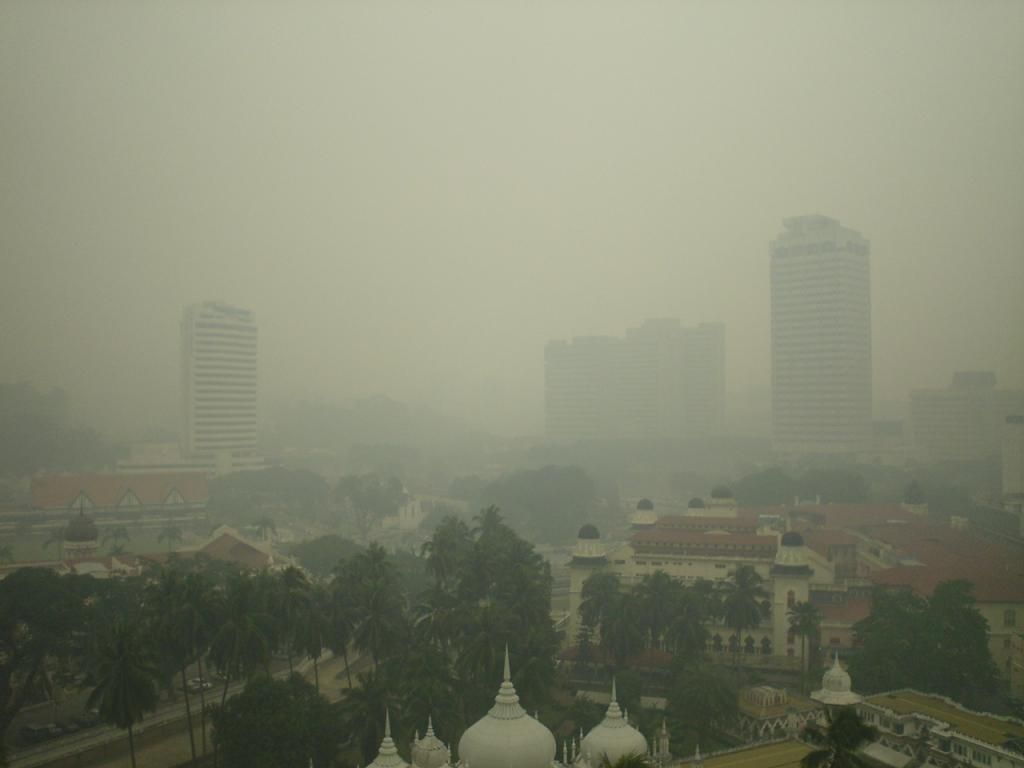Bringing Renewable Energy to the Third World Can Mean Leap-Frogging Over a Fossil Fuel Infrastructure

Apparently, he’ll soon have an opportunity to make a presentation on the subject to some high-level people in there, which sounds like an exciting opportunity. I started out by listing everything that came to mind:
Myanmar is rapidly putting itself on the map as a civilized country, which will eventually mean an increase in energy demand. The history of the country in brief consists of warring tribes, 120 years of British occupation, followed by 50 years of brutal military rule, then very recently, a slow relinquishing of military control, a somewhat improving human rights situation, and consequently, the gradual lifting of economic sanctions that have been imposed by the civilized world. Obviously, this fragile progress could fall apart, and the country could tumble back into the barbaric stupidities of its past. But it’s a good bet that this won’t happen and soon they will experience more demand for electricity–which they will be obligated to meet one way or another.
Obviously, Myanmar could emulate China, sprinting to build coal-fired power plants and cutting deals with coal vendors in the U.S., Australia, etc. This means that it will soon wind up with huge numbers of people gasping for breath and dying of lung disease. It will also mean the international disgrace of their cities, now suddenly plainly in sight on the world stage (see pic below) with air they can cut with a knife. You can only hope that government officials perceive that to be deeply undesirable.
A lot will come down to an analysis of resources. What do they have in abundance? Personally, I doubt it’s MSW. Myanmar, with its population of 51 million, has one of the world’s largest gaps between rich and poor, which means that it has 50.9+ million people living in levels of poverty that are unimaginable to us. Obviously, this is morally wrong, but that’s not the point, rather it’s that people living at that level of poverty don’t produce MSW. In fact, one of the ways they sustain themselves is going through whatever piles of MSW there may be, i.e., the trash of the very few rich people, pulling out anything that could possibly have any monetary value.
Unfortunately, the country does have a great deal of natural gas. But, because Myanmar is currently so undeveloped, it has the potential of leap-frogging over the building of the traditional, hugely expensive, dirty and wasteful fossil fuel plants and transmission/distribution infrastructure. Perhaps they’ll opt for what I call “The 21st Century Solution,” i.e., microgrids based on distributed generation in the form of wind and solar, as well as any other renewable resources; they have huge hydro resources in the northern part of the country. You need to share my hope that they have a strong appetite for this concept.
But unless Myanmar can somehow make this very attractive financially, it won’t happen at all. Obviously, they can’t tax people who have no money. Are they willing to tax the rich? That’s a possible approach, but it’s highly unlikely; rich people don’t like to be taxed, and it’s not as if they have no power to affect what happens in their country.
Perhaps the World Bank will want to support the new government in its quest to turn away from an expensive and environmentally unfriendly fossil fuel infrastructure, and its new-found interest in moving immediately to the 21st Century Solution.
Realistically, what’s far more likely is that one of the top international oil companies will make its offerings very attractive to Myanmar, and the government will fall into bed with them, if it hasn’t done so already. The result will be yet one more fossil fuel infrastructure on a planet whose environment is rapidly losing its patience with its human population, and is in the process of expelling it.
Here’s another important challenge, one that I really don’t know how to address: the motives of the individual people to whom you are presenting. If your clean energy concept is to go forward, how might the individual members of your audience be involved personally? How do they stand to gain financially? How will all this affect their prestige? Their ability to come to power or remain in power once they’re there? Let’s be honest: these issues are far more important than the rational discourse I presented above. Obviously, you’ll need a great degree of discretion in your attempt to figure this all out; these are not questions you can simply ask out loud. The insight I have into this personally could fit on the head of a pin, but again, you need to take the subject quite seriously.
Btw, “The 21st Century Solution” is not trademarked, patented, or copyrighted. It’s neither a trademark nor a servicemark. The “IP” is not protected, domestically or internationally in any way whatsoever. Please feel free to be the first to use it; my only hope is that it somehow will come to mean something in this horrifically troubled world.
In closing, as promised, here is a photo of a typical Southeast Asian city. This happens to be Kuala Lumpur in 2005. It’s even worse today.


In the 90’s I was able to travel throughout SE Asia, including about 6 weeks in Myanmar during its “militaristic” phase when it was all but closed to travelers from the US. In all of these countries especially in the countryside waste was a problem. Garbage was simply thrown in ever growing piles behind what stood for a house. The challenge would be to collect decades of trash. Air pollution was primarily due to the overwhelming number of charcoal fires plus vehicles that had little or no pollution controls. (imported from China.) In the cities sewers were essentially a concrete trench on the side of the road that usually had a series of concrete covers. It was then one of the most interesting countries I visited as there was no evidence of western influence. Opportunities will exist but many times more infrastructure than anticipated will need to be included as part of a plan. There is also a strong undercurrent of Buddhism which may be unusual for the Western mind.
I could go on but you also mentioned another interesting topic the motives of the individuals who need to be addressed. I think I have been reasonably successful at this when I have been asked to accompany a negotiator. There is an acquired skill that may start off with being a good listener and part of the technique is to put what you want and need aside. This presents a problem for some full of the entrepreneurial spirit. From the background it is possible to observe micro-expressions, inflections, mannerisms… as reactions to things said to discern something of a person’s motivations.
Thanks for this. How interesting that you’ve been there; yes, very few Americans were allowed in until very recently.
I suppose this should have been my main response to my friend: What makes you think they have any interest whatsoever in adopting this aspect (energy) of Western culture — or any other? I’m not sure you have any better chance here than if you were introducing McDonalds or rap music.
At the time, the government really had no interest in western commerce (or western freedoms) But it is not unusual that government interests and what the people want are different. Without getting into the politics the take away might be that targeting consumers can sometimes be successful where approaching municipalities would meet many obstacles. You should have my email. Please feel free to pass it along to your friend or continue a more specific conversation there.
I’ll certainly do that if it looks like this meeting is going to actually take place. Since I wrote this its status has become doubtful. I’ll let you know, for sure.
From what you have written, it would appear that the best long-term solution would be hydro power. That does not rule out the use of trash to energy or renewables in selected locations. Also, if in the future demand increases to the extent that hydro power is no longer adequate, the hydro power could be supplemented with renewable systems with the hydro system providing power when renewable power is not available.
A potential problem with trash to energy systems is that they can cause considerable air pollution if they are not well designed.